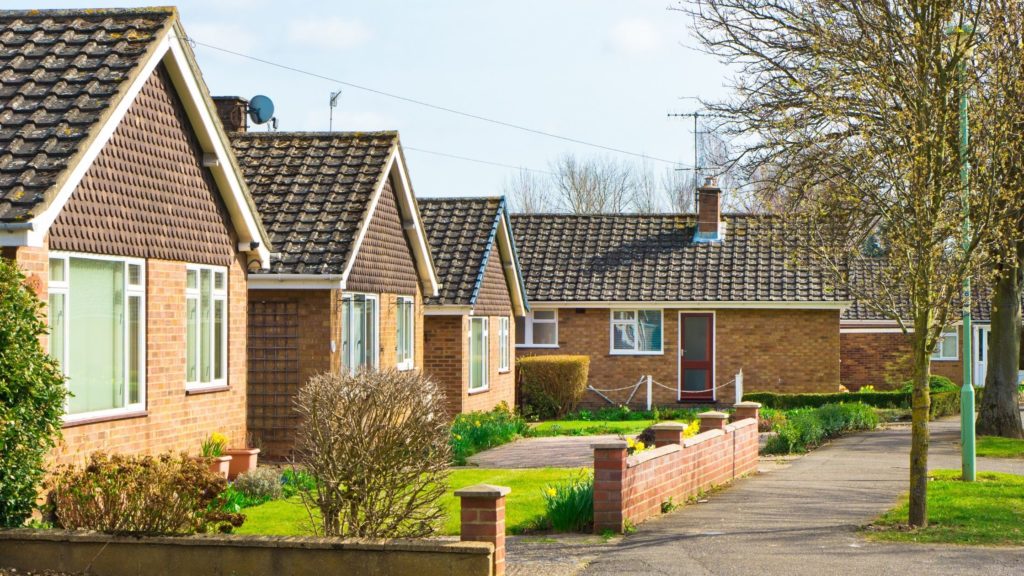Buying Landed Property in Singapore | Cost of Landed Property Singapore
Property
 by Priyadarshini
25 March 2022
by Priyadarshini
25 March 2022
If you’ve saved up enough money to seriously explore owning landed property, here’s a guide to all the necessary costs of owning a landed property in Singapore. We tell you about buying landed property in Singapore.
Landed Property Types in Singapore
Landed property may appear to be the same to the uninformed, yet there are several types:
- Terrace house – one of at least three units in a row, with the middle units sharing walls on both sides with their neighbours.
- Semi-detached house — two units built side by side with a shared wall in the middle, with mirror images of the layout and front.
- Bungalow/detached house — a self-contained, free-standing structure with no shared walls or roofs with other units.
- Good Class Bungalow (GCB) – the crème de la crème, GCBs are essentially bungalows with at least 1,400sqm of land area and are the most sumptuous of all landed homes.
Buying Landed Property in Singapore
Why Should you Stay in a Landed Property?
The fundamental attraction of landed properties is a large amount of land available. If you have three generations living under one roof, living in a landed property is great (of course, only if you can afford it), because you won’t be running into each other all the time and will have enough room to prevent feeling claustrophobic.
Because of the huge land area, it is particularly ideal for prospective dog owners, especially if you intend to buy or adopt larger breeds such as golden retrievers and labradors, which are only permitted in condominiums or landed houses. This provides them with plenty of space to run and play, as well as a grass patch (in certain cases) in between their regular walks.
Buying Landed Property in Singapore
Downpayment
When it comes to private property, you can only get a bank loan, as opposed to buying an HDB flat, where you can get a loan through HDB. As a result, the downpayment for private bank loans is typically greater — you would be required to make a downpayment of 25% of the purchase price, as opposed to 10% for HDB flats. Please keep in mind that at least 5% of the downpayment must be paid in cash, with the rest 20% paid with your CPF or cash. You’ll also have to pay an option fee of 5% of the purchase price on top of that.
Monthly Mortgage
As previously stated, while purchasing a private property, you will only be able to obtain a private house loan from a bank or any financial institution, with a Loan-To-Value (LTV) maximum of up to 75 percent and an average loan length of 25 years. When it comes to interest rates, they differ based on whether they are fixed or floating. Rates vary from one bank to the next (usually 1.2 percent -3 percent ). Fixed interest rates are fixed for two to five years, depending on the length of your loan’s lock-in period. Floating rates fluctuate in accordance with market value. Floating interest rates are further classified into three types: board rates, SIBOR floating rates, and fixed deposits.
If the house you want to buy is still under construction – often known as Building Under Construction (BUC) – we recommend acquiring a loan with no lock-in period so you can eventually reprice to a lower sum. In the case of completed homes, you may want to obtain a loan with a lock-in period to ensure that the interest rates remain constant, allowing you to plan your finances each month.
Legal Expenses
There are also legal expenses to undertake all of the legwork for you (i.e. get the paperwork done). It is normally much quicker to simply go with the bank’s default law firm, although you are free to hire another lawyer at a reduced cost if you want. The legal expenses vary depending on whether the transaction is a BUC or a resale. Furthermore, stamp duty is levied based on the value of your property — the higher the property value, the higher the stamp duty. Because landed houses are more expensive, you should expect to pay a significant amount in stamp duty.
Home Insurance
As a relatively peaceful country with low crime rates and a lack of natural disasters such as tsunamis or earthquakes that can destroy homes, you may not realise the significance of home insurance until something unpleasant occurs, such as a fire. That’s when you’ll kick yourself for not insuring your home.
Though you are not required by law to have your home insured in some situations (when you have fully paid off your mortgage), most homeowners would like to purchase home insurance to ensure that their property and belongings are protected in the event of an accident or robbery. When looking for home insurance, you’ll see that different insurance companies offer a number of policies with varying levels of coverage, such as home contents, fixtures and fittings, damage to the house, loss of items and valuables, and personal liability.
Maintenance Fees
Though you can breathe a sigh of relief knowing that living in a landed property does not entail the high monthly maintenance costs as condominiums do, you will still have to consider your home’s monthly electricity bills.
Home Loan | Education Loan | Personal Loan | Car Loan | Travel Insurance | Lifestyle | Real Estate | Career




